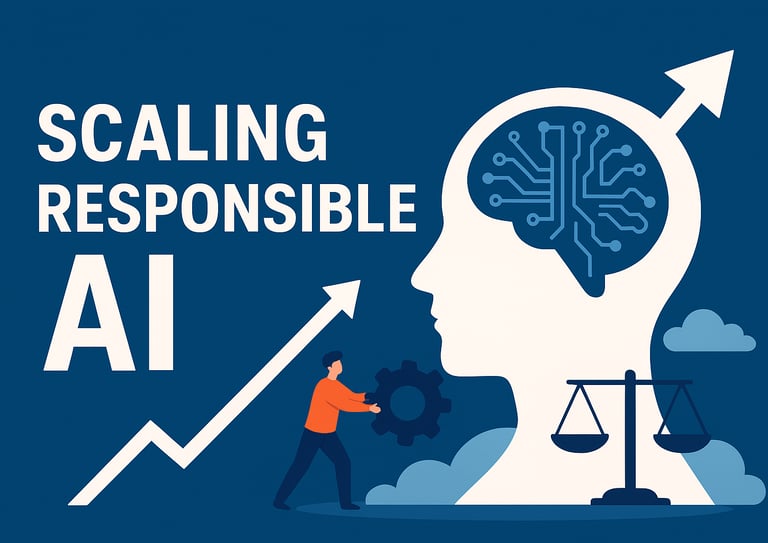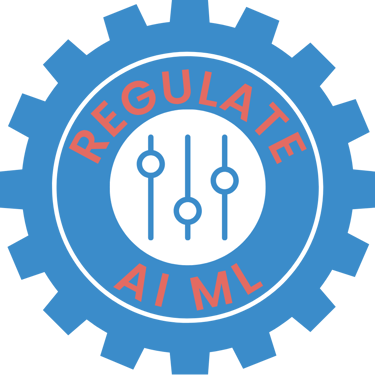Scaling Responsible AI: From Ethics to Everyday Impact
From healthcare to finance, AI is rewriting industries—but with great power comes great responsibility. This post highlights real-world examples, frameworks, and tools that make scaling responsible AI a reality.
ETHICSINNOVATION
Regulateaiml Team
8/25/20252 min read


Scaling Responsible AI: From Ethics to Everyday Impact
Artificial Intelligence is no longer just about algorithms crunching data in the background—it’s everywhere. From your morning Spotify playlist to your bank’s fraud detection system, AI is quietly shaping how we live, work, and connect. But here’s the catch: when AI grows, so does its responsibility. Scaling AI without responsibility is like handing the steering wheel of a speeding car to a child.
So, how do we scale AI responsibly—making sure it grows, but grows in the right direction?
Real-World Implementations That Inspire
Microsoft’s Responsible AI Dashboard – A toolkit that helps developers detect and fix bias, check interpretability, and audit models before deployment.
Google’s Model Cards – Like nutrition labels, but for AI models. They show how a model was trained, its limitations, and best-use cases.
OpenAI’s Red Teaming Practices – Before releasing models like GPT, red teams stress-test them for harmful biases and misuse scenarios.
Fintech in India – Banks like HDFC and ICICI use AI responsibly for fraud detection. They follow strict auditing to ensure that customers aren’t flagged unfairly.
How Businesses Are Making It Work
Retail: Walmart uses AI to optimize supply chains but also ensures it’s energy-efficient—responsibility meets sustainability.
Healthcare: PathAI collaborates with hospitals to reduce diagnostic errors in cancer detection, but it publishes transparency reports to build trust.
Social Media: LinkedIn applies responsible AI to match candidates with jobs fairly, avoiding the pitfalls of bias-heavy algorithms.
So, What’s Next?
Scaling responsible AI is not about slowing down innovation—it’s about making innovation sustainable. Just like we wouldn’t build skyscrapers without safety codes, we can’t scale AI without responsibility baked into every layer.
And the exciting part? You don’t need to be a tech giant to join in. Developers, students, startups—everyone can adopt practices like:
Using open-source fairness toolkits like IBM AI Fairness 360
Adding explainability with SHAP or LIME
Keeping humans in the loop for critical decisions
Want to Dive Deeper?
Here are some amazing resources to fuel your curiosity:
Partnership on AI – A coalition working on best practices in AI.
OECD AI Principles – International standards for trustworthy AI.
The bottom line:
Scaling AI without responsibility is like building a skyscraper on sand—it will collapse. But if we scale it responsibly, AI doesn’t just grow; it becomes a foundation for a fairer, smarter, and more inclusive future.
Why Scaling Responsibly Matters
Imagine an AI-powered recruitment tool that favors one group over another. Or a medical diagnosis system that misses out on rare diseases because the training data wasn’t diverse enough. These aren’t “what ifs”—they’ve happened. Amazon once scrapped its AI hiring tool because it showed bias against women, and healthcare algorithms have been found to under-diagnose minorities.
Scaling responsible AI means ensuring these errors don’t just multiply as AI spreads across industries. It’s about making sure fairness, transparency, and accountability grow along with innovation.
